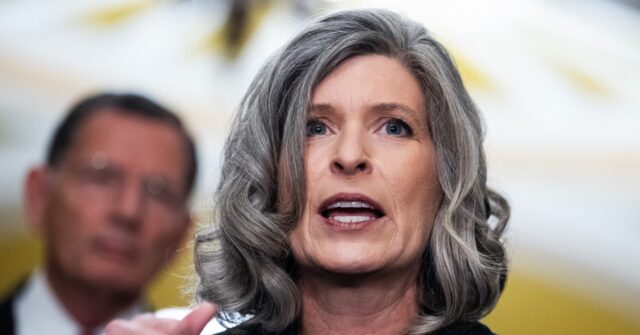Senator Joni Ernst (R-IA) recently addressed a significant concern regarding the content moderation practices of Meta Platforms, Inc., particularly as it pertains to military recruitment content. In a letter to Meta CEO Mark Zuckerberg, Ernst emphasized the critical importance of freely disseminating military-related information, noting that the freedoms enjoyed by Americans are inherently tied to the sacrifices made by servicemen and women. She expressed deep concern over Meta’s algorithms potentially inhibiting effective outreach and recruitment efforts by the U.S. military—situations she characterized as not only detrimental to recruitment but also as a form of devaluation for military sacrifices made by brave individuals.
Ernst’s letter highlighted that since February 2024, there has been an escalating trend of restrictions placed on military-related social media posts, even those that seemingly adhere to Meta’s community guidelines. Instances were reported where the GoArmy Instagram account was rendered inactive or unsearchable, disrupting essential communication channels. For example, the Army Office of Chief of Public Affairs noted that non-controversial posts, such as those depicting the Tomb of the Unknown Soldier and various military activities sans visible weapons, faced disruptions. These actions led Ernst to argue that the message conveyed through shadow banning such content was alarmingly misleading—suggesting that the valiant commitment to national defense contravenes the standards set by Meta.
Senator Ernst, who has a lengthy career in military service as a retired lieutenant colonel from the Army National Guard, brought her experience to the forefront of her critiques regarding Meta’s inconsistent content moderation. She recounted troubling events during September 2024, where multiple posts from the GoArmy account were flagged as guideline violations on two separate days, leading to its status being downgraded. It is particularly troubling that many of these flagged posts had already been cleared upon appeal. Furthermore, on one occasion, the GoArmy account was demoted without any flagged content. Ernst expressed frustration over the lack of clarity and prompt communication from Meta regarding these arbitrary policy implementations.
In her letter, Ernst demanded a transparent explanation of the policies that led to the flagging or removal of military-related posts. She sought clarity on what measures Meta is implementing to avoid similar censorship issues in the future. There is a growing concern that the arbitrary nature of these policies undermines the recruitment efforts of military services, thereby threatening the ways in which the U.S. Armed Forces connect with potential volunteers.
The senator’s request extends beyond mere clarification; it reflects an urgent call for fairness, transparency, and an evaluation of Meta’s policies regarding national security-related content. By questioning the existing framework governing how military content is handled, Ernst aims to bring attention to the pressing need for tech companies to reassess their moderation mechanisms. She believes that these measures should not unfairly target military communications or compromise the integrity of the nation’s defense strategy.
In conclusion, Senator Ernst’s intervention illustrates the overarching battle between technology platforms’ content moderation practices and the essential need for clear, open channels of communication for the U.S. military. Her letter shines a light on the critical implications of social media policies on national security and highlights the responsibility of technology companies to create an environment that supports, rather than hinders, the service and sacrifices made by military personnel. The resolution of these issues is paramount, both for the military’s recruitment capabilities and the broader dialogue on freedom of expression and national service.

